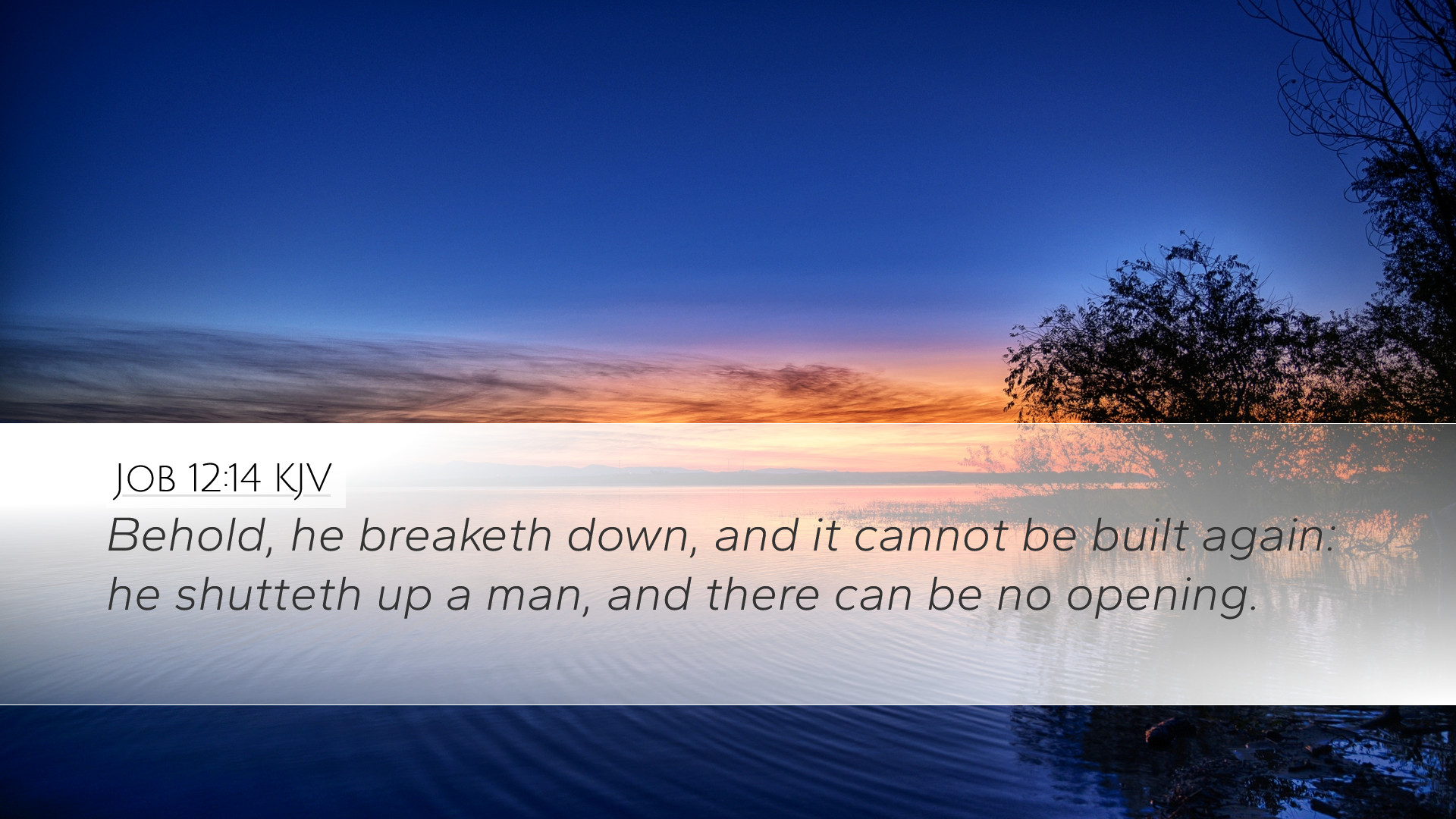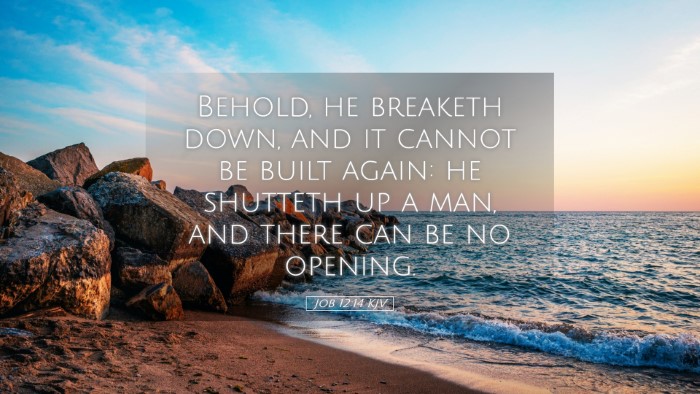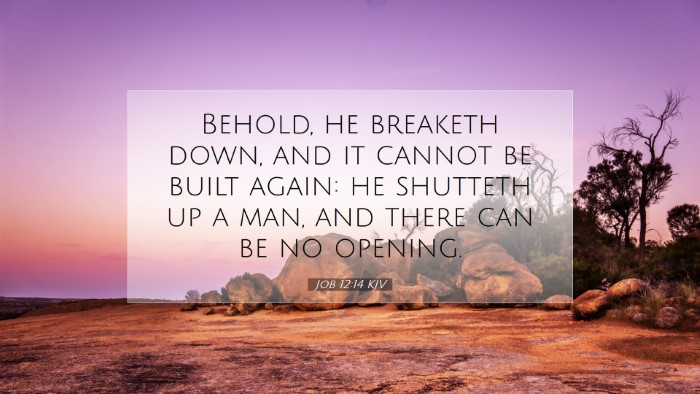Old Testament
Genesis Exodus Leviticus Numbers Deuteronomy Joshua Judges Ruth 1 Samuel 2 Samuel 1 Kings 2 Kings 1 Chronicles 2 Chronicles Ezra Nehemiah Esther Job Psalms Proverbs Ecclesiastes Song of Solomon Isaiah Jeremiah Lamentations Ezekiel Daniel Hosea Joel Amos Obadiah Jonah Micah Nahum Habakkuk Zephaniah Haggai Zechariah MalachiJob 12:14
Job 12:14 KJV
Behold, he breaketh down, and it cannot be built again: he shutteth up a man, and there can be no opening.
Job 12:14 Bible Commentary
Commentary on Job 12:14
Job 12:14 states, "Behold, He breaketh down, and it cannot be built again: He shutteth up a man, and there can be no opening." This profound verse encapsulates the sovereignty of God over creation and humanity, particularly in the context of divine judgment and the inescapable consequence of God's will.
Contextual Background
In the book of Job, we witness a deep theological discourse spanning the nature of suffering, justice, and divine omnipotence. Job, amidst profound personal anguish, seeks to understand the workings of God in a world where innocence suffers and the wicked seem to prosper. This verse emerges as part of Job's response to his friends, who maintain a rigid view of how God interacts with humanity—namely, that suffering is always a direct result of sin.
The Sovereignty of God
Matthew Henry elucidates this verse by emphasizing God's ultimate power to construct and deconstruct. He notes that when God dismantles something, it remains irreparable by human efforts. Henry writes, "What God has razed, no man can rebuild; His governance is absolute, and His decrees are unalterable." This notion invites reflection on the futility of trying to manipulate circumstances when the Divine will has decreed otherwise.
The Implication of Divine Control
Albert Barnes further expands on the theme of divine sovereignty by suggesting that when God shuts a man in, it illustrates a profound truth about human limitations. He argues, "The doors that God closes are impenetrable; no human endeavor can alter the course once set by His will." These insights draw attention to the human condition: that without God’s permission, all our efforts may ultimately prove meaningless.
The Inescapability of God's Will
Adam Clarke interprets this verse from the angle of existential despair faced by Job, recognizing that God’s decisions can lead to a state from which one cannot escape. Clarke asserts, "When God decides to restrain a person from action or hope, He renders all attempts to escape that state utterly useless." This speaks to the overarching theme of God’s power in the universe—where human frailty is starkly juxtaposed against divine omnipotence.
God's Judgment and Human Response
In the context of judgment, this verse serves as a reminder of God's capacity to bring down the proud and the ungodly. Henry indicates that divine judgment, whether it leads to prosperity or destruction, is based on God's knowledge of the heart. He asserts, "God scrutinizes the inner motives of men; thus, His destruction is just, and His creation, righteous." This emphasis on divine insight asserts that God’s actions are rooted in His profound wisdom and not arbitrary.
Theological Reflections
- Human Limitations: The inability to construct what God has destroyed emphasizes a theological anthropology—the understanding of human limitations in contrast to divine capability.
- Hope in Despair: While the context indicates despair, there remains an underlying hope. Even when God appears to shut all doors, believers can trust in God’s ultimate plan and sovereignty.
- Divine Justice: Job’s assertion encapsulates a key thematic concern not just in his narrative but throughout Scripture: God's justice is perfect, and He alone holds the prerogative to build or to dismantle.
Conclusion
Job 12:14 stands as a profound declaration of the authority of God over all creation and the affairs of humanity. Through insights from Matthew Henry, Albert Barnes, and Adam Clarke, we glean lessons on divine sovereignty, the nature of judgment, and the human condition. As we reflect on this verse, we are encouraged to surrender to God’s comprehensive will, recognizing that while He may break down our hopes and plans, He also holds the power to rebuild in His perfect timing.


